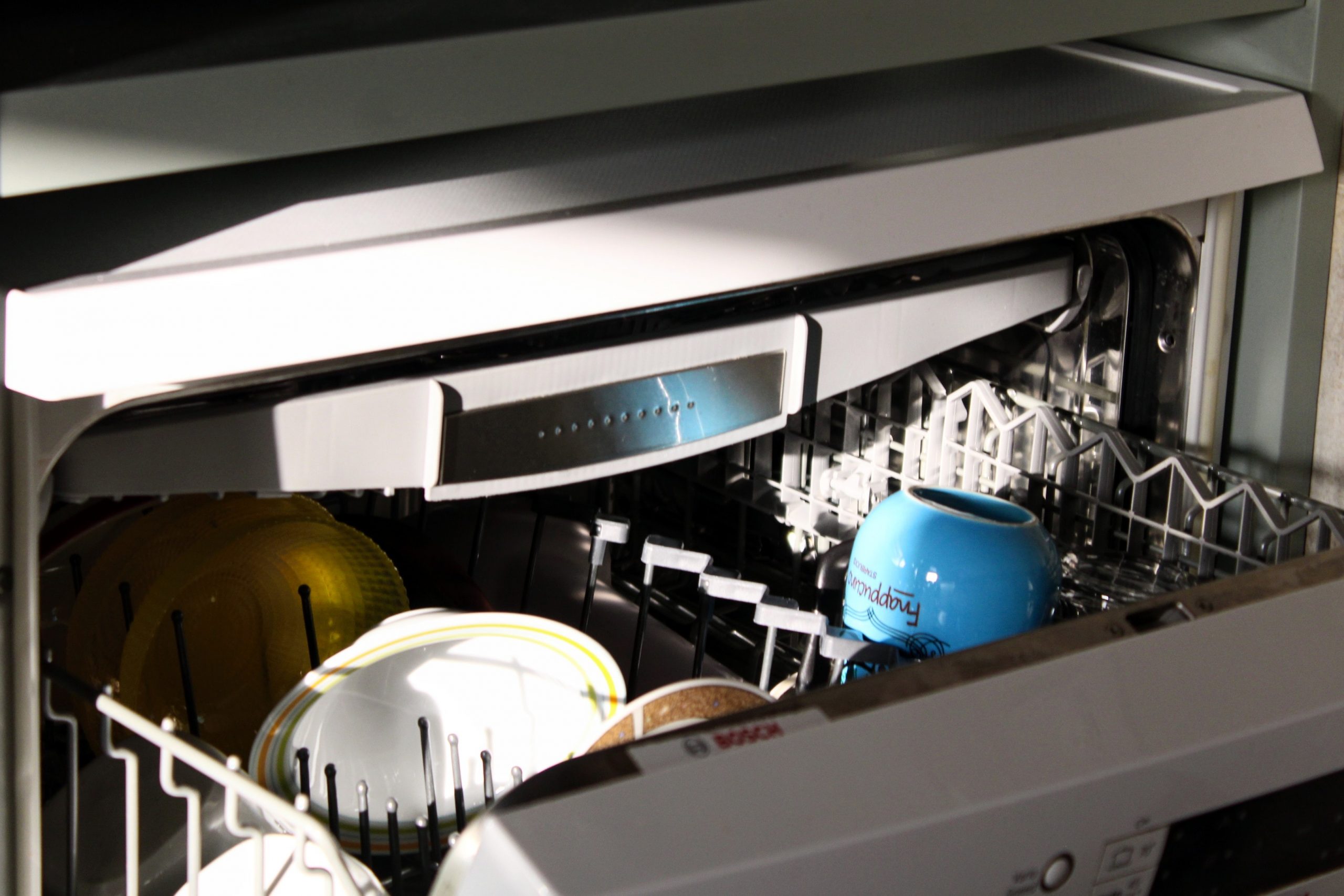If your dishwasher isn’t cleaning properly, you’re likely dealing with one of several common issues that can affect its performance. From incorrect loading patterns to clogged spray arms, these problems can turn your convenient kitchen helper into a source of frustration. The good news is that most dishwasher cleaning issues have simple solutions that you can often handle yourself. Let’s explore the most common reasons for poor dishwasher performance and learn how to fix them.
Spis treści:
Incorrect Loading Practices
One of the most frequent causes of poor dishwasher performance is improper loading. Overloading the dishwasher or placing items in ways that block the spray arms can prevent water from reaching all dishes effectively. Make sure to leave enough space between items and avoid nesting bowls or cups together. Large items should go along the sides and back of the bottom rack, while cups, glasses, and lightweight plastic items belong on the top rack. Remember to angle dirty surfaces toward the center of the machine where the water spray is strongest.
Spray Arm Problems
The spray arms are crucial for proper cleaning as they distribute water throughout the dishwasher. Over time, these arms can become clogged with mineral deposits or food particles, limiting their effectiveness. Check if the spray arms spin freely and inspect the holes for any blockages. You can clean them by carefully removing the arms and using a thin wire or toothpick to clear any debris from the holes. Regular cleaning of the spray arms every few months can prevent this issue from occurring.
Water Temperature Issues
Your dishwasher needs hot water to clean effectively – typically around 120-150°F (49-66°C). If the water isn’t hot enough, the detergent won’t dissolve properly and grease won’t break down effectively. Before starting a cycle, run the hot water in your sink until it’s hot. This ensures the dishwasher fills with hot water from the start. If water temperature remains an issue, check your water heater settings or consider having a professional inspect your dishwasher’s heating element.
Filter Maintenance
Most modern dishwashers have a filter system that catches food particles and prevents them from recirculating onto clean dishes. A clogged filter can significantly reduce cleaning performance. Remove and clean the filter at least monthly, more often if you notice decreased performance. Remove any visible debris and rinse the filter thoroughly under running water. Some filters can also be cleaned with warm, soapy water for a more thorough cleaning. Regular filter maintenance is essential for optimal dishwasher performance.
Detergent Selection and Usage
Using the wrong type or amount of detergent can lead to poor cleaning results. Modern dishwashers work best with quality detergent specifically designed for automatic dishwashers. Avoid using too much or too little detergent – follow the manufacturer’s recommendations based on your water hardness and soil level. If you have hard water, consider using a water softener or detergents with built-in water softening agents. Also, ensure your rinse aid compartment is filled, as this helps water sheet off dishes and improves drying performance.
